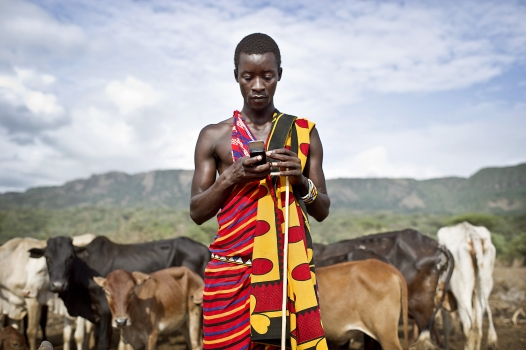Between the 13th and the 30th of June, Ecuador went through its second major social mobilisation after the left-leaning president Rafael Correa finished his ten-year period in office in 2017. The mobilisation was called by the Confederation of Indigenous Nationalities of Ecuador – CONAIE – for the right-wing president Lasso to respond to 10 demands that challenge his neoliberal austerity programme, which is sponsored by the International Monetary Fund (IMF). CONAIE’s ten demands included stopping the advance of oil and mining frontiers, introducing a moratorium on debt servicing, and regaining and focalising fuel subsidies. The protests were marked by material and symbolic violence and almost ended up in the president’s destitution by the National Assembly. Dr Geoff Goodwin and Erik Mozo tell us more about this historic social mobilisation.
The Spanish-language version is available to read here.
Soon after Lasso began his four-year presidential term in May 2021, CONAIE held talks with his government to try to limit his neoliberal reform agenda and improve socioeconomic conditions. However, the government refused to respond to the movement’s demands and instead set about accelerating neoliberal restructuring. Having attempted to find a negotiated solution, CONAIE mobilised its bases and called an indefinite strike in June, which other social movements followed.
Tension and violence quickly scaled up between the government and the protestors. The day after the mobilisations started, the president of CONAIE, Leonidas Iza, was irregularly detained by the police for the alleged crime of paralysing public services. Iza’s detention lit up CONAIE’s protests as it was perceived as symbolic violence and an arbitrary use of the law. The indigenous mobilisation grew in scale as a result, blocking several central highways and occupying public spaces. This led to Iza’s conditional liberty.
Lasso attempted to prevent the escalation of the strike by issuing a state of exception, which suspended the constitutional right to protest. In an effort to take the sting out of the protests, he also announced a series of small-scale measures aimed at alleviating the socioeconomic crisis, including increasing conditional cash transfers to low-income households by $5 a month. However, Lasso failed to respond to CONAIE’s demands and Iza vowed to continue the protest, centring on the capital city, Quito.
Indigenous peoples faced significant state repression on the streets – at least six people died during the protests and many more were injured and detained. Police entered by force at least four universities during the protests despite the prohibition in the Higher Education Law for them to do so. United Nations agencies in Ecuador spoke against the police’s heavy use of tear gas in places where women and children rested, while Amnesty International criticised the excessive use of force by the police and military. One soldier also died in a conflict in the Amazonian province of Sucumbios, following the militarisation of the zone. Police vehicles and buildings were also ransacked in response to state repression. Meanwhile, small groups of government supporters protested against the mobilisations, especially in Quito.
As protests grew on the streets, the National Assembly almost got a qualified majority of two thirds of the parliamentarians to destitute the president and trigger new presidential and legislative elections. On June 24th, the UNES coalition, which is linked to the former president, Rafael Correa, activated article 130 of the constitution, due to “serious political crises and internal commotion” for the first time since the 2008 constitution was enacted. The proposal secured 80 of the 92 votes required to reach a qualified majority and remove Lasso from office.
The mobilisation ended with an agreement after 18 days and left a controversial outcome, a weak government and an even more divided society. According to a CEDATOS national poll, 50 per cent of the population thought that CONAIE’s mobilisation was justified, and 44 per cent thought it was not. Nevertheless, 64 per cent of people did not support the means of the protest, against a 31 per cent who did support them.
The division between those who supported and were against the mobilisation has given space for ethnic divisions to deepen and racist expressions to increase. Lasso and members of his government have actively contributed to this by portraying CONAIE as a violent movement intent on creating chaos and overthrowing the government, reproducing racist tropes about indigenous peoples. The government’s support and credibility also fell hard during the protests. In June, according to Perfiles de Opinion national poll, Lasso’s approval rating was 17 per cent, falling 13 per cent points in one month. This, along with a majority of parliamentarians that voted to remove Lasso and advance elections, leave a weakened president and government on various fronts.
In the agreement to stop the protests, CONAIE did not met all 10 demands, but achieved some significant results. First, extra gasoline and diesel will receive 15 cents more of subsidy per gallon (CONAIE initially asked for 40 cents), and the government guaranteed that the gasoline subsidy will be further focalized for agriculture. The government has also stated that it will limit the expansion of the oil frontier to protect the territories of the indigenous peoples, and mining will be forbidden in protected areas, ancestral territories, intangible, archaeological and hydrological protected zones. Discussions are ongoing between the government and the social movements involved in the protests over outstanding issues.
Ecuador’s latest social mobilisation presents an intriguing case study for struggles against neoliberal austerity policies in Latin America in the twenty-first century, similar to the ones that simultaneously happened in Ecuador, Colombia and Chile in 2019. In Colombia and Chile left governments have been voted into office to respond to the demands of protestors. The latest mobilisation in Ecuador might ultimately produce a similar outcome. However, this would require critical reflection on the failures of past left governments and the construction of a broad progressive front that leverages the power and autonomy of the country’s indigenous movements.
The views expressed in this post are those of the author and in no way reflect those of the International Development LSE blog or the London School of Economics and Political Science.
Image credit: Lou Gold via Flickr





